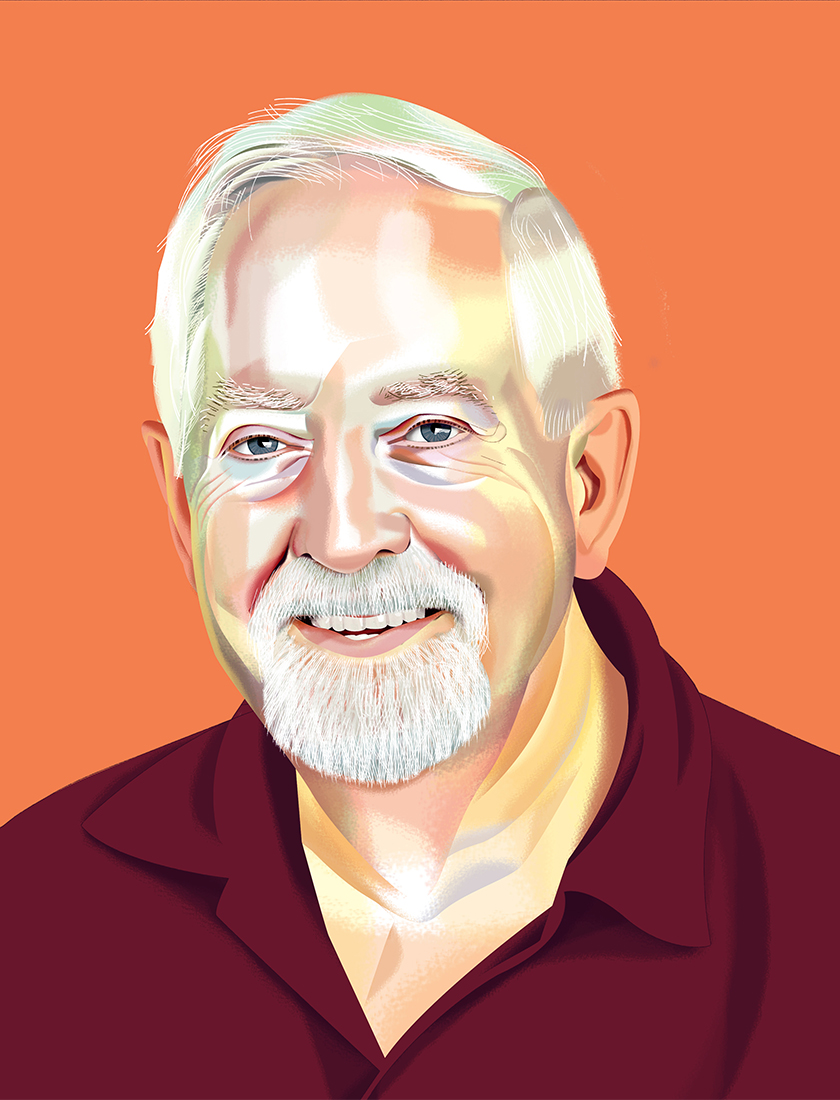Now more than ever, it’s clear. We all have a part to play to keep each other safe, to lift each other up. This year’s 2020 Distinguished Alumni Award recipients show us how it’s done. These four extraordinary grads — Karen Barnes, Ron M. Clowes, Howard Leeson and Stanley Read — have brought together ideas and people to make the world a more just, humane and intelligible place.
When it comes to Canada’s Constitution, Howard Leeson, ’72 MA, ’83 PhD, hasn’t just written books on the subject. He helped write the document itself.
“As a good civil servant, you’re behind the scenes,” he says. But there’s a note of pride as he describes the night in November 1981 when nine premiers dispatched four deputy ministers to a sixth-floor meeting room at Ottawa’s Chateau Laurier. As Saskatchewan’s first deputy minister of intergovernmental affairs, reporting to then-premier Allan Blakeney, Leeson was among them.
Negotiations had reached an impasse, halted by fundamental disagreements between the prime minister and the premier of Quebec. But in about two hours, Leeson and his colleagues settled on what became the final agreement. With the passing of the landmark document in 1982, Canada was no longer under British rule, and Canadians had new legal protections under the Charter of Rights and Freedoms.
Leeson is still in awe of what was achieved in the face of an ongoing national unity crisis. “There was a huge chance that Canada might have broken up in that period,” he says, “but instead it came together around this fundamental document.”
Of course, it wasn’t (and still isn’t) perfect, he says. Quebec didn’t sign on in 1982 and subsequent efforts — the Meech Lake and Charlottetown accords — also failed. The formula to amend the Constitution, to Leeson’s great disappointment, is a bust. To him, negotiation is too often replaced by court rulings. And while the Constitution did include Indigenous rights, he says much still needs to be done on that front.
“The biggest disappointment? It was how Indigenous rights got sidelined after 1982. It’s an unfinished process.”
But even with its flaws the Constitution is a powerful protector for us all, Leeson believes. As the high school dropout-turned-University of Regina political science professor emeritus can attest, all Canadians should have the chance to pursue their dreams — and the Constitution makes it our right. “Regardless of your background, if you want to be a musician, if you want to be a politician, whatever you want to be … there’s a guarantee regardless — a Constitutional guarantee,” he emphasizes, “that you have the right to try.”
*****
6 things you should know about Howard Leeson
“Dr. Leeson’s contribution to Canadian unity cannot be overstated. At every turn, [he] demonstrated his commitment to Canada. His advice and hard work … allowed Western Canada, and Saskatchewan in particular, to punch above its weight at the negotiating table.” – Roy Romanow, former Saskatchewan premier and intergovernmental affairs minister
High school dropout
“I took a wrong turn … but I guess it turned out to be a right turn.”
A winding road
Leeson joined the Canadian army, then took a job in an appliance repair factory in Nebraska. While working full time, he finished high school and got his first degree. “[It] never occurred to me — all of the worlds that would open up with a university education.”
His advice
“Never think that you are too old to begin the university career and never underestimate the value of a broad education embracing many disciplines.”
The Patriation Minutes: a tell-all tale
Leeson wrote this 2011 book from his notes of the Constitution meetings, including the premiers’ private discussions. Former Alberta premier Peter Lougheed, ’51 BA, ’52 LLB, ’86 LLD (Honorary), called it “the most important document made public in Canada.”
Realistic but proud
“To be in love with Canada is not to be blind about it. It’s not, ‘my country, right or wrong.’ But rather, as they say, ‘my country, if it’s wrong, I’ll set it right.’ ”

We at New Trail welcome your comments. Robust debate and criticism are encouraged, provided it is respectful. We reserve the right to reject comments, images or links that attack ethnicity, nationality, religion, gender or sexual orientation; that include offensive language, threats, spam; are fraudulent or defamatory; infringe on copyright or trademarks; and that just generally aren’t very nice. Discussion is monitored and violation of these guidelines will result in comments being disabled.